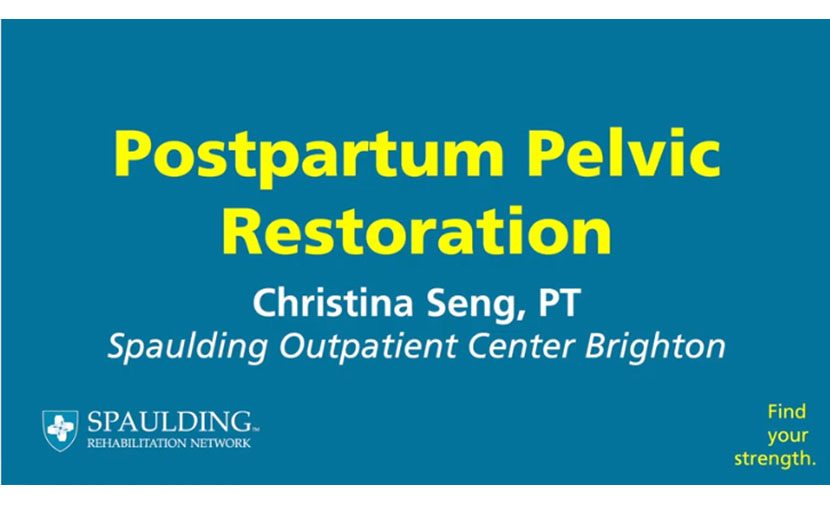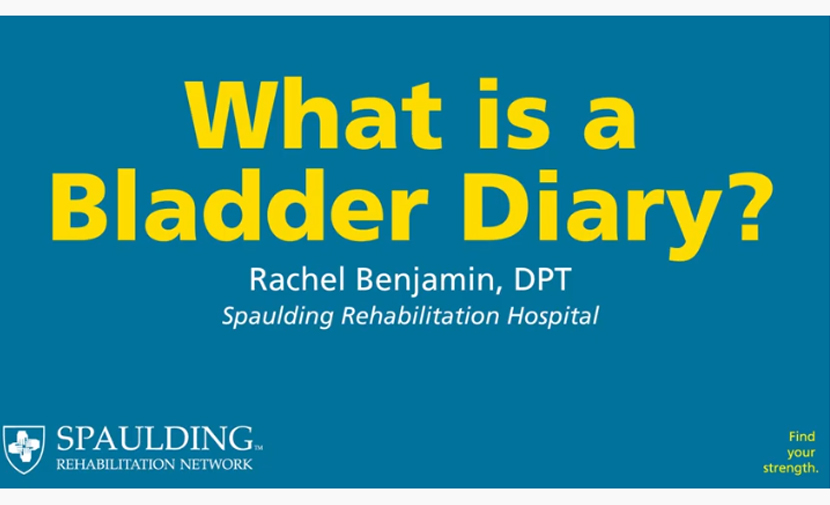Header Skipped.
Pelvic Health Rehabilitation at Brighton Outpatient
We understand people experience unique medical and emotional issues throughout their lifetime. From postpartum pain to urinary incontinence, perimenopausal symptoms to osteoporosis, we can create a program to address your specific needs.
Our program is designed to offer interdisciplinary treatments and services to address the specific needs of pelvic health patients. Our clinicians strive to help you reach the best level of health, fitness and well-being you can achieve.
Spaulding Rehabilitation does not discriminate treatment with regard to age, race, color, ethnicity, culture, language, religion, national origin, sex, sexual orientation, gender identity or expression, socio-economic status, physical or mental disability. We strive to enhance the wellbeing of all members of our community.
Spaulding Brighton’s Women’s Wellness & Fitness
Services are designed to address pelvic health diagnoses, related musculoskeletal pain as well as underlying movement impairments.
Women's Health Physical Therapy Services include:
- Manual Therapy for pain relief
- Exercise prescription for pregnancy and postpartum
- Diastasis Recti management & safe abdominal strengthening
- Relief from low back, hip, SI pain and resolution of urinary leakage
- Biofeedback retraining for pelvic pain and weakness
- Performance Matrix screening & retraining for return to sport
- Pilates & GYROTONIC™ Movement Re-Education
Work with our specialist clinicians & enjoy our state of the art movement studio as you get back to life feeling stronger and more confident in your movement.
Our Pelvic Health Services are also designed to treat the following medical conditions:
Urinary or Fecal Incontinence
Urinary Incontinence
Urinary incontinence is the involuntary leakage of urine. Urinary incontinence affects 25% to 30% of women ages 18-40 and increases up to 50% of women over age 65. Urinary leakage can be caused by pelvic floor weakness and or tightness as well as decreased coordination of the pelvic floor with associated pelvic girdle supportive muscles. Pregnancy, childbirth, menopause, hysterectomy, pelvic and abdominal surgery, and obesity are risk factors. A pelvic health physical therapist will assist you in regaining control over your bladder through evaluating, strengthening, mobilizing, and retraining the pelvic floor muscles.
Fecal Incontinence
Fecal incontinence is unexpected leakage of stool from the rectum and loss of bowel control. Urgency and incontinence can be due to pelvic floor weakness from tissue or muscle damage during childbirth or be correlated with other bowel dysfunctions. A pelvic health physical therapist will assist you in regaining control over your bowel control with skilled manual therapy, behavioral education, and pelvic floor strengthening and mobilization.
Our Specialist Clinician
-

Christina Seng, MS, MSPT
Physical Therapist, Women’s Health/Pelvic Floor Clinical Specialist
Education: Northeastern University, Bachelor of Science in Physical Therapy; Northeastern University, Master of Science in Physical Therapy
Licenses: Physical Therapy
Special Training/Certifications: Certified Stott Pilates Instructor, Certified TPM Movement Specialist, Certified Burdenko
Method Specialist, trained in Herman and Wallace Pelvic Floor Series, Julie Wiebe’s Women’s Health Piston Science Series,
Mulligan Approach, and Maitland Australian Physiotherapy Approach.Clinical Interests: Pelvic floor dysfunction, pregnancy and postpartum related pain, incontinence, dyspareunia and pelvic
pain, diastasis recti abdominis dysfunction, prolapse, postoperative pelvic rehabilitation, and general orthopedic and
musculoskeletal injuries.
Levels of Care for Pelvic Health
Our highly trained clinical staff will use the most advanced rehabilitation treatments and evidenced-based research to make a difference in your life and help pave the road to wellness.
View Spaulding's outpatient pelvic health programs and services (PDF) >
-
Outpatient







